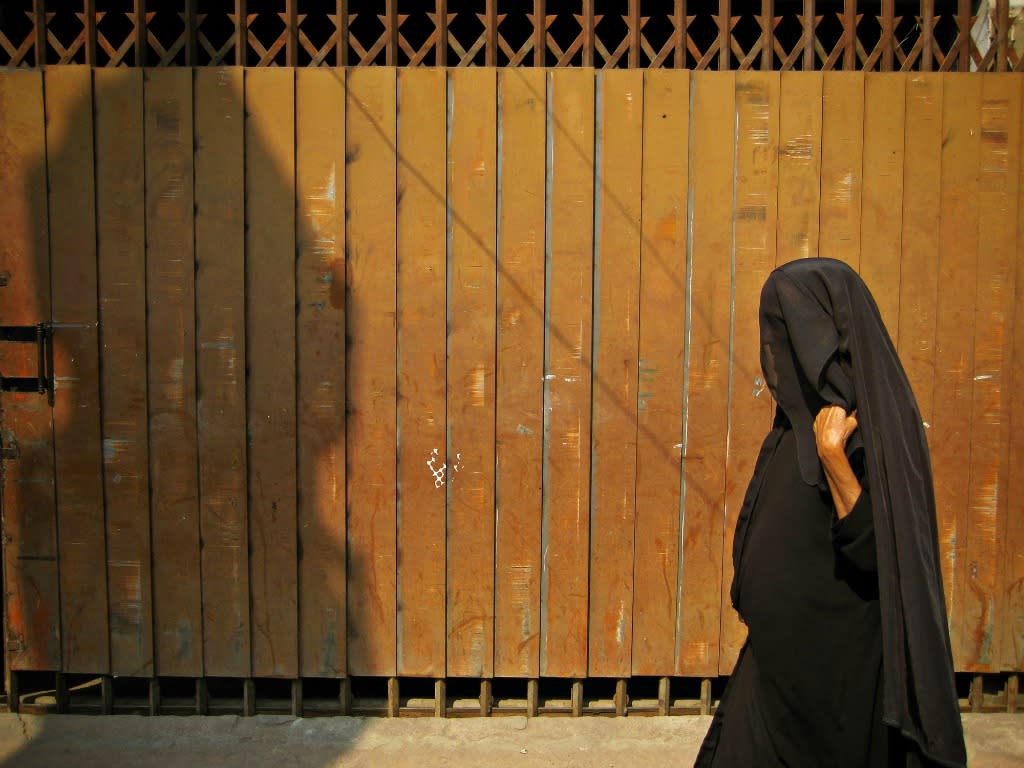Burkas May Be Banned From Some Public Places in the Netherlands

In a controversial move, the vast majority of members of Dutch Parliament voted on Tuesday to ban the burka — a traditional garment worn by some Muslim women to cover their entire bodies and faces — in schools, hospitals, and government buildings in the Netherlands, according to the Telegraph. Out of 150 members, 132 voted yes to the ban, which will include “all clothing that completely covers the face” — and that includes ski masks and helmets, according to the Independent.
If the law goes into effect, it will still allow women to wear burkas on the streets and some public spaces. But it’s not a law just yet — it’ll have to go before the Senate first. According to the Telegraph, the logic behind the decision is the “necessity to be able to interact face-to-face, for instance in places where public services are performed and safety must be guaranteed.” The publication says the rule would not affect many women, as only about 150 women in the Netherlands wear a burka — this according to a local newscaster. If the law passes, people covering their faces in the spaces banned will pay a fine of up to €410 (equivalent to about $430).
Part of what makes the decision so controversial is that it’s supported by the the anti-Islam Freedom Party (PVV), led by politician Geert Wilders, who had been put on trial for hate speech about Moroccans living in the Netherlands, according to the article. Another lawmaker representing the PVV has gone on record asking, “How do we even know there’s a woman under this Islamic textile?” According to the Independent, the PVV supports a full ban on burkas in the country, which would prevent Muslim women from wearing the garments anywhere in public. Parliamentary elections are being held in March, and the PVV is leading in the polls.
Prime Minister Mark Rutte said that the ban would only apply “in specific situations where it is essential for people to be seen” or for security reasons, the Independent says. He insists that the bill does not hold any religious implications.
But some politicians are being vocal in their defense of Muslim women’s rights to wear a burka anywhere. “It is reprehensible to exclude these women and isolate them because of a subject anxiety among certain citizens,” said Parliament member Tunahan Kuzu, who added that the right to wear burkas counts as freedom of expression. He feels Muslims have an inalienable right “to be who they are and dress how they want,” according to the Independent.
Some Muslim women protesting the ban by attending last week’s parliamentary debate dressed in burkas, says the Telegraph. “One of them, Karima Rahmani, argued that arrangements to enable women wearing full-face Islamic dress to identify themselves were already in place.” For that reason, she doesn’t see the need for a ban.
The vote to ban burkas in the Netherlands is reminiscent of France’s decision to put the kibosh on the Islamic veil in 2011 — it was the first European country to do so. The decision was even supported by the European Court of Human Rights, which claimed it was not a violation of religious rights, as burkas are not a requirement in Islam. About 1,500 arrests have been made in the past five years as a result of that ban, according to the Telegraph, and women have been fined up to €150 for wearing the garments.
Other countries have also implemented a ban. The second country to outlaw burkas was Belgium, which passed legislation in July 2011, according to the Express. Switzerland banned the burka in public areas in 2013, and in September 2016, Bulgaria’s Parliament banned the burka as well. Other countries that limit the rights to wear burkas in public to varying degrees include Italy, Chad, and Egypt.
Controversy has also swirled around the recent decision in some French towns to ban the burkini — a modest swimwear garment worn by some Muslim women that covers the body and leaves the face revealed. The reasoning, according to the Hindu, is “wearing the outfits could undermine public order by making other beachgoers angry or afraid” in the wake of acts of Islamic extremism in France, but “the burkini’s defenders have argued that the wearing of the garment has nothing to do with promoting bloodshed.”
There’s still a chance that the law banning burkas in the Netherlands won’t be passed, though. According to the Telegraph, “The Dutch government’s advisory State Council body had said it believed issues around the Islamic veil could be solved ‘without invoking legislation.’ The government said in a letter, “From time-to-time there’s discussion about it … but it’s not really a big social problem.”
Follow us on Instagram, Facebook, and Pinterest for nonstop inspiration delivered fresh to your feed, every day.

